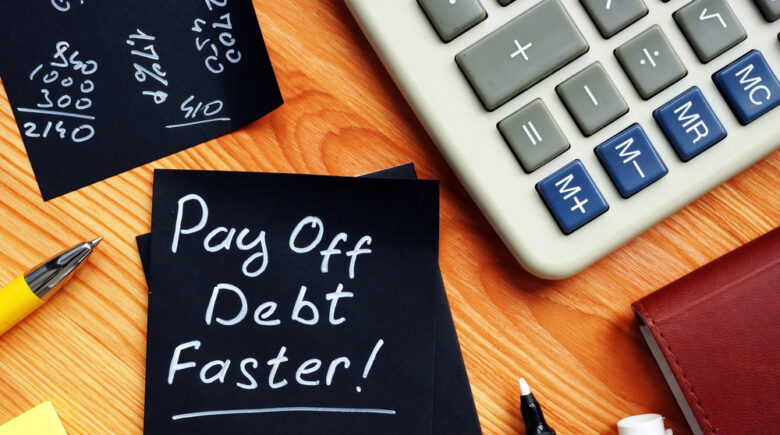There are numerous approaches to debt consolidation for credit card debt. Because they are so simple to apply for, personal loans are a popular choice.
People would never need to borrow money to pay off their debts in a perfect world. However, when trying to get out of debt, borrowing money is frequently the only option. It can be challenging for people to get out of debt because of the high interest rates they pay on credit cards. They still have to pay a significant amount of interest despite having the minimum payment. They can pay off their debt more quickly with a lower interest rate.
When Consolidating Debt Makes Sense
A personal loan might be the best choice for people who are attempting to consolidate their debts. Consolidating debt with a personal loan can help people get out of debt faster, despite the fact that it may appear to be a risky strategy. This kind of loan might be a good choice if the terms are fair and the interest rate is low.
The Advantages of Personal Loans Qualify for Lower Interest Rates
As of May 2023, a personal loan’s Annual Percentage Rate (APR) will be around 10.95%. That is lower than the typical APR for credit cards, which is 19.91 percent. It can save a lot of money on interest with a lower rate. A person seeking a personal loan must have a score of 670 or higher, according to myFICO.com, in order to be eligible for the best terms and interest rates. However, in order to be considered for a loan, this score should be the minimum. When you apply for a personal loan, you will receive better rates if your credit score is higher.
Consolidate All Debt Payments
If you have multiple credit cards with high interest rates, establishing a plan to repay your debt can be challenging. If you want to stay on track toward getting out of debt, it’s important to have a monthly payment that you can handle. A personal loan can help you lower your interest rate and consolidate all of your debts into one payment.
You can figure out how much you can save on interest and pay off your debts faster by using a debt repayment calculator. Let’s say, for instance, that you owe $5,000 at an interest rate of 17% and $7,000 at an interest rate of 21%. On the two credit cards, you can only make a total of $200 in monthly payments. You will not be able to pay off your debts if you have a high interest rate and do not make the necessary payments on your credit cards. If you have a personal loan with a 10% interest rate, you can quickly start paying off your debts by contributing $200 per month.
Reduce Your Monthly Payments
If you are struggling with high credit card debt and are unable to make the required payments, a personal loan might be the best option for you. You may be able to pay off your debts more quickly if you have a repayment plan and a lower interest rate. Reduce your monthly payments by consolidating all of your debts into a single payment. You can get a lower APR and lower payments by making a lower monthly payment and repaying the loan over a longer period of time.
Obtain a Time-Frame to Get Out of Debt
One of the biggest problems with credit cards is that you might never be able to pay off the debt if you use them for purchases. A personal loan, on the other hand, has a fixed interest rate, a fixed monthly payment, and a repayment plan that can be changed to meet the specific date you can pay off your debts.
Consider getting a personal loan instead if you are not making enough progress on your credit card bills. A loan of this kind can reduce your interest rate and combine all of your debts into a single monthly payment.
At the point when Individual Credits Aren’t The Most ideal Decision
Albeit an individual credit can be helpful with regards to taking care of charge cards, it’s not generally the smartest plan to apply for a new line of credit to combine your obligations as a whole. There are a few situations in which you might want to try something else.
You Don’t Have a Lot of Debt
If you don’t have a lot of debt, you might be able to use a balance transfer credit card to consolidate it into one payment and lower the interest rate. You can easily pay off your debts in less than two years with a card with zero percent APR. If you pay off your debts early, you could save hundreds of dollars in interest, even if you have to pay a fee to transfer your balances. Check out the benefits and rewards programs offered by some credit cards before applying for one.
If you have a large credit card balance, you might end up spending more than you can afford. This won’t change your spending habits. If you continue to spend the same way, paying off your debts early can help you avoid further financial trouble. You must have a comprehensive financial plan before applying for a debt consolidation loan. This could mean getting advice from a financial coach or learning how to make a budget. You can begin making the necessary adjustments to improve your financial situation once you have a solid understanding of what works for you.
You Need Assistance With Your Financial Situation
Debtors can sometimes feel overwhelmed and unable to make payments on their own. If this is the case, a nonprofit organization or debt relief program might be able to help you. Even though certain third-party debt settlement companies have received a warning from the FTC, it is still essential to verify their legitimacy.
You might be eligible for bankruptcy if you have a lot of debt that will be difficult to pay off in the future. Talk to a certified consumer counseling service (CCCS) counselor before deciding to file for bankruptcy. Additionally, the Federal Trade Commission (FTC) advises customers to investigate any agency they are considering working with.



